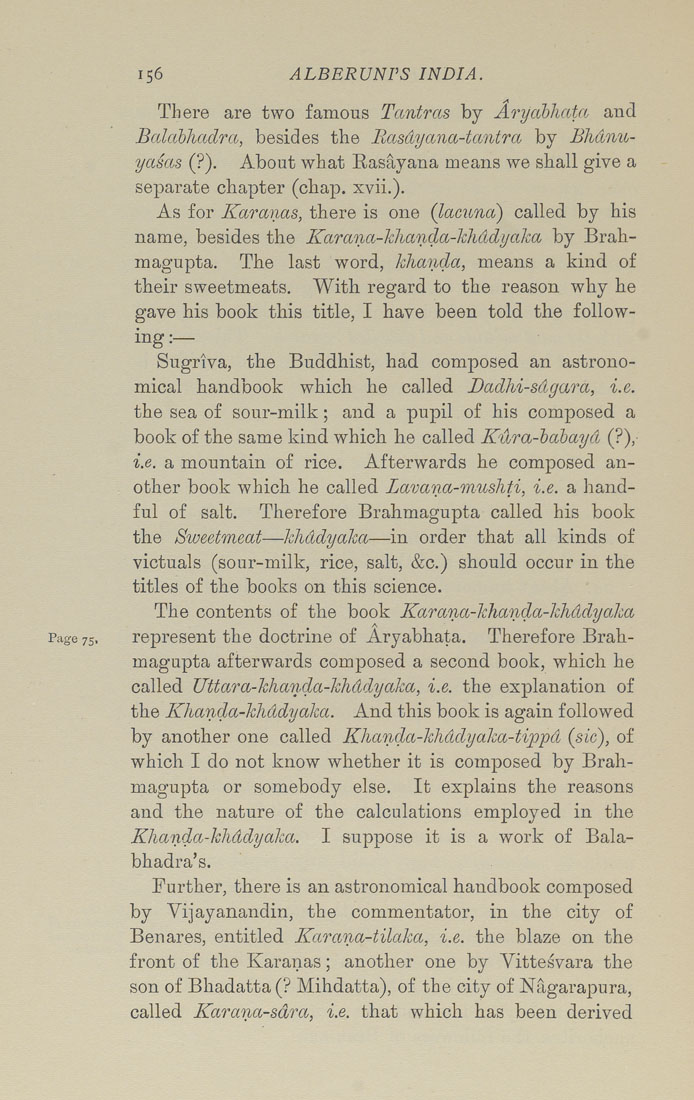Bīrūnī, Muḥammad ibn Aḥmad, Alberuni's India (v. 1)
(London : Kegan Paul, Trench, Trübner & Co., 1910.)
|
||
|
|
|
|
| Page 156 |

156 ALBERUNPS INDIA.
There are two famous Tantras by Aryabhata and
Balabhadra, besides the Basdyana-tantra by Bhdnu-
yasas (?). About what Rasayana means we shall give a
separate chapter (chap, xvii.).
As for Karanas, there is one (lacuna) called by his
name, besides the I{^arana-khandua-khddyaka by Brah¬
magupta. The last word, khanda, means a kind of
their sweetmeats. With regard to the reason why he
gave his book this title, I have been told the follow¬
ing :—
Sugriva, the Buddhist, had composed an astrono¬
mical handbook which he called Dadhisdgara, i.e.
the sea of sour-milk; and a pupil of his composed a
book of the same kind which he called Kvbra-habayd (?),
i.e. a mountain of rice. Afterwards he composed an¬
other book which he called Lavana-mushti, i.e. a hand¬
ful of salt. Therefore Brahmagupta called his book
the Sweetmeat—khddyaka—in order that all kinds of
victuals (sour-milk, rice, salt, &c.) should occur in the
titles of the books on this science.
The contents of the book Karana-khanda-khddyaka
Page 75, represent the doctrine of Aryabhata. Therefore Brah¬
magupta afterwards composed a second book, which he
called TJttara-khanda-khddyaka, i.e. the explanation of
the Ivlianda-khddyaka. And this book is again followed
by another one called Khan(ia-k]iddyaka-tip)pd (sic), of
which I do not know whether it is composed by Brah¬
magupta or somebody else. It explains the reasons
and the nature of the calculations employed in the
Khanda-khddyaka. I suppose it is a work of Bala-
bhadra's.
Further, there is an astronomical handbook composed
by Vijayanandin, the commentator, in the city of
Benares, entitled Karana-tilaka, i.e. the blaze on the
front of the Karanas; another one by Vittesvara the
son of Bliadatta(? Mihdatta), of the city of Nagarapura,
called Karanasdra, i.e. that which has been derived
|
| Page 156 |







